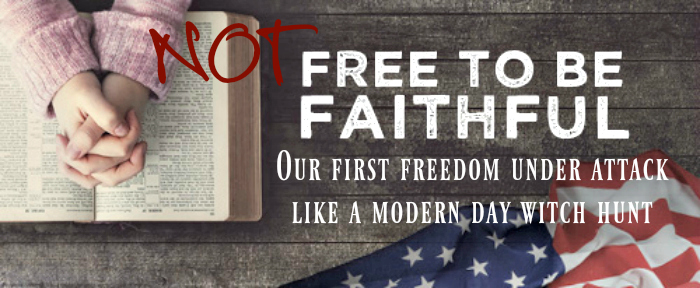 Kerby Anderson
Kerby Anderson
Religious liberty is one of the foundations of America, and it is a right enshrined in the First Amendment. But Mary Eberstadt is concerned about the widespread discrimination in today’s secular society. She explains why in her book, It’s Dangerous to Believe: Religious Freedom and Its Enemies. Her book begins with the many stories that I have presented in various commentaries and that we often discuss on the radio each week with Kelly Shackelford of First Liberty. Then she goes on to explain how Christians can respond to critics by holding them to standards they supposedly accept.
Two examples show why Christians need to be concerned about this trend and need to learn how to respond. First, there is the sad story about Mozilla CEO Brendan Eich who was hounded out of his position merely because he supported Proposition 8 in 2008 in California. By the way, a majority of the voters in the state supported the proposition. Mary Eberstadt made the point that if someone this important and powerful could be forced out of a business, what chance do the rest of us have?
The second example is Michael Lindsay, president of Gordon College in Massachusetts. He and fourteen other Christians signed a letter asking for a “religious exemption” to the president’s planned executive order banning sexual orientation discrimination by federal contractors. It is worth mentioning that even Senator Elizabeth Warren supported a religious exemption in such cases.
The city of Salem suspended a long-term contract with Gordon. The Lynn School Committee ended its relationship with the college and refused to accept Gordon College students as student-teachers. Then the New England Association of Schools and Colleges announced that it was going to consider whether the college violated their standards for accreditation.
It is easy to see the irony. Three centuries after the original Salem witch trials, Gordon College was subjected to a secularist witch trial. This is why Christians need to understand what is happening and take a bold stand for religious liberty.
 Listen Online
Listen Online Watch Online
Watch Online Find a Station in Your Area
Find a Station in Your Area









 Listen Now
Listen Now Watch Online
Watch Online
